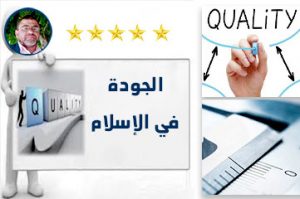القيادة بين الشورى والديمقراطية
كتب/ خالد النجار
ربما ومن خلال مطالعتي للعديد من المؤلفات التي تناولت مواضيع ذات صلة بالنمط الديموقراطي والأنماط الأخرى للقيادة، فقد ركزت غالبية المؤلفات حول ضرورة أن تمتلك السلطة القيادة الديموقراطية.
فالديمقراطية بمفهومها الواسع السياسي: هي حكم الشعب نفسه بنفسه، وبمفوهما المتخصص في القيادة: هي عملية تشاورية بين القائد والأتباع، فهل هذه العملية يُقصد بها “الشورى” أي أحد قواعد الحكم في الاسلام؟ هنا اختلف الكثير من الكُتّاب والباحثين حول اختلاف المفهومين.
فقد ركز المفهوم المتعلق بالقيادة الديموقراطية الحديثة على المشاركة لتحقيق بعض الغايات التي يلزم لها تدخلاً واسعاً تبدأ من القاعدة وصولاً لكافة المستويات التنظيمية تحت مظلة وسلطة القائد، وقد تناول مفهوم الشورى بمعنى القيادة الشورية والتي تستمد قواعدها ومضامينها من قوله تعالى: “وأمرهم شورى بينهم”.
فهل يوجب ذلك أن تتشاور القيادة مع الأتباع حول كافة ما يتعلق بمصالح الأمة أو مصالح التنظيم؟ هنا اختلف الفقهاء حول مجالات الشورى، إذ رأى العلماء أن هناك مجالان، الأول: الجواز في الشورى، حيث يرى الإمام ناصر الدين البيضاوي أن الأمر بالنسبة للشورى هو أمر الحرب.
بينما أورد الشيخ أبو البركات النسفي في كتاب “مدارك التتريل وحقائق التأويل” أن الشورى في الأمر تعني أمر الحرب ونحوه مما لم ينزل عليه فيه وحي؛ وقد ذكر الطبري تفسيراً أوسع لمعنى الأمر فيتناول التشاور في كل ما لم يأت فيه عن النبي صلى الله عليه وسلم أثر.
اقرأ أيضاً:
الجودة الشاملة في الإسلام وأثرها على التعليم








